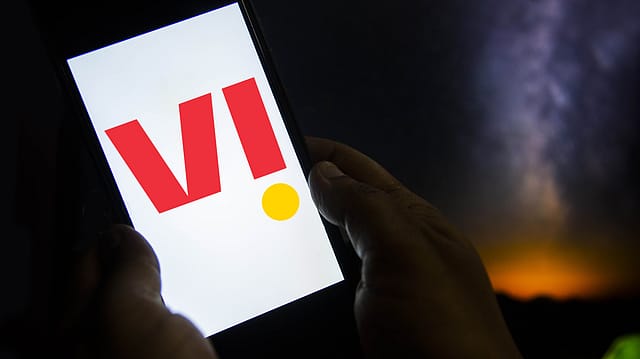‘Not in any such discussion’: Vodafone Idea denies talks with Elon Musk’s Starlink
ADVERTISEMENT

Telecom operator Vodafone Idea on Monday cleared the air on its possible tie-up with Elon Musk’s Starlink to manage its services in India. The development comes days after news outlet BusinessWorld reported that Elon Musk is partnering with Vodafone Idea to enter into the domestic telecom sector via Starlink. According to the report, the government is planning to sell a 33.1% stake in Vodafone Idea following the company’s tie-up with Starlink.
Responding to clarification sought by the capital markets regulator Securities and Exchange Board of India, the telecom operator says, "We would like to submit that the Company is not in any such discussion with the named party. We are not aware of the basis of the said news item. We wish to reiterate and clarify that the Company will comply with SEBI Listing Regulations and duly keep the stock exchanges informed of all the price sensitive information."
Following the development, the share price of the telecom operator plunged 6.06% to hit an intraday low of ₹15.96 apiece on the BSE. The scrip closed 5.47% at ₹16.06. This is in line with the broader BSE Sensex, which closed 379.46 points or 0.53% lower at 71,892.48. The company’s market capitalisation stood at ₹78,179.58 crore shares as more than 12.09 crore shares exchanged hands on the BSE, as against the two-week average of 975.98 lakh shares.
Notably, Starlink, which is owned by Elon Musk-led SpaceX, has been eyeing the domestic telecom space for quite a while now. The company, last year, had reportedly applied to the Indian National Space Promotions and Authorisation Centre (IN-SPACe) to get clearance for setting up earth stations in India. However, stringent regulations have delayed the company’s foray into the domestic telecom sector. In 2022, the government asked Starlink to return the pre-selling/booking money to the consumers after the Elon Musk-led company did not requisite licenses from the Department of Telecommunications for rendering satellite services in India.
Meanwhile, the Telecommunication Bill, 2023, which was introduced in the winter session of parliament last month, is touted to pave the way for the company’s entry into the domestic telecom sector along with Bharti Airtel’s Eutelsat OneWeb, and Amazon’s Kuiper. The bill amends the TRAI (Telecom Regulatory Authority of India) Act, 1997. The bill provides clarity on the spectrum for satellite communication services. The Bill empowers the Central government to allocate spectrum on an administrative basis for satellite broadband services, which is the global norm for assigning spectrum. It categorically mentions Global Mobile Personal Communication Services (GMPCS) by satellites; National Long Distance and International Long Distance as services that would be provided spectrum via administrative allocation.